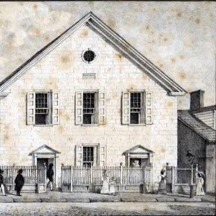History was made exactly 190 years ago here in Philadelphia from September 20-24, 1830 when 40 free and fugitive Black delegates from seven states publicly held the first conference of its kind, thereby giving birth to what came to be known as the National Negro Convention Movement (NNCM). Its goal, as documented in The Encyclopedia of Greater Philadelphia, was “to address the hostility, discrimination, exclusion, and violence against African Americans by whites in northern cities.”
As noted by University of Washington professor Shirley J. Yee in “Black Women Abolitionists, A Study in Activism,” this and subsequent meetings of the NNCM provided “an organizational structure through which Black men could maintain a distinct Black leadership and pursue Black abolitionist goals.”
The Black men who led the NNCM were courageous and revolutionary. But it wasn’t just brothers. Although sexism (which I and other Black men today must acknowledge and end) caused Black women to be generally ignored in the NNCM, two of them stood fast and demanded that their voices be heard and their presence be felt. Elizabeth Armstrong and Rachel Cliff, alone amongst the 38 male delegates in Philadelphia in 1830, were powerful and heroic forces in the movement’s activism and successes. Clearly, more Black women should have been invited and permitted to actively participate because they had already proven themselves as leaders in the forefront of the abolitionist, nationalist, human rights, and civil rights movements.
190th Anniversary of Philly-Based Revolutionary National Negro Convention Movement
Praising the Past


The NNCM was conceived when Hezekial Grice, the founder of the Legal Rights Movement in Baltimore and an ingenious mathematician as well as a skilled machinist, wrote an impassioned letter in 1830 to prominent free Black men all across the country because, in his words, he was troubled by “the hopelessness of contending against oppression in the United States.” Also, he asked if Blacks should escape America’s racist hell by emigrating to Canada. He then suggested that a convention be held to discuss and debate this and other important cultural issues. Those prominent Black leaders- with Mother Bethel A.M.E.’s Bishop Richard Allen at the helm- agreed to hold such a convention in the City of (so-called) Brotherly Love and Sisterly Affection.
Read More
Read More
Advertisers | Contact Us | Events | Links | Media Kit | Our Company | Payments Pier
Press Room | Print Cover Stories Archives | Electronic Issues and Talk Radio Archives | Writer's Guidelines






